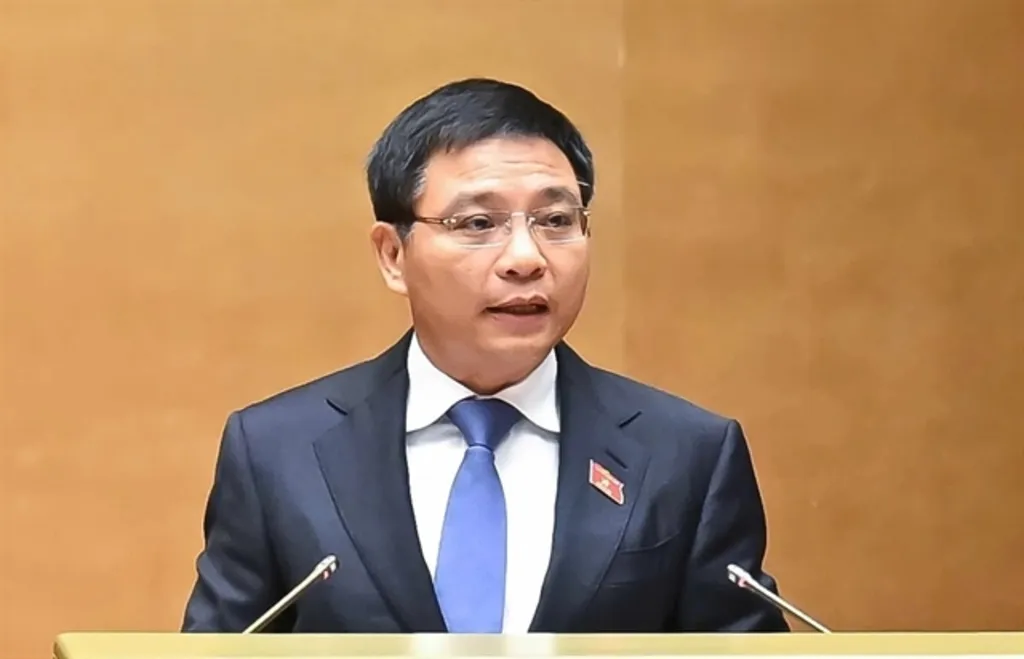 Economy
Economy

 |
| Minister of Finance Nguyễn Văn Thắng delivers a report on the Resolution to develop IFCs during an NA session in Hà Nội on June 27. — VNA/VNS Photo |
HCM CITY — Việt Nam will establish an international financial centre (IFC) in HCM City and Đà Nẵng, following a resolution passed by the National Assembly (NA) on Friday (June 27).
The IFC is expected to reshape Việt Nam’s financial landscape and position the country as a key player in global finance within the next two decades.
With over 93.5 per cent of lawmakers voting in favour, the resolution is set to take effect on September 1, laying the legal groundwork for Việt Nam to transform two of its leading cities into regional financial powerhouses.
Under the resolution, HCM City and Đà Nẵng will each play distinct but coordinated roles.
HCM City will prioritise capital markets, banking, and monetary markets, along with sandbox frameworks to test financial innovation and fintech applications.
It will also host specialised trading platforms and pioneer new digital transaction models.
Meanwhile, Đà Nẵng in central Việt Nam will serve as a hub for green finance, financial technology, and digital services.
It will also pilot controlled platforms for digital assets and currencies, along with advanced payment ecosystems, and aims to attract remittance funds and boutique fund managers.
Both cities have already begun mobilising infrastructure, training personnel, and launching investment campaigns to court major international financial players.
Incentives for global investors
The resolution has outlined a set of special policies to support the development of the IFC, including provisions on foreign exchange, banking, tax incentives, capital markets, land use, and labour policies, among others.
For example, priority investment projects in the IFC can be granted land leases of up to 70 years.
Foreign professionals working in the IFC will be exempt from personal income tax until 2030.
New investment projects in priority sectors will enjoy a 10 per cent corporate income tax rate for 30 years, with up to four years of tax exemption and a 50 per cent tax reduction for the following nine years.
Non-priority projects will have a 15 per cent tax rate for 15 years, with two years of exemption and a 50 per cent reduction for four years.
Approved products and services in the IFC will include commodity and derivative trading platforms, carbon credits, cultural and art assets, precious metals, and green financial instruments.
Dispute resolution mechanisms
The resolution also introduces flexible dispute resolution mechanisms, allowing investors to choose between Vietnamese law, international arbitration, or both.
Disputes can be resolved at Vietnamese courts, foreign courts, or international arbitration centres, including those established within the IFC themselves.
Addressing the parliament prior to the vote, Minister of Finance Nguyễn Văn Thắng acknowledged potential risks such as speculation, asset bubbles, and price manipulation in the operation of new trading platforms.
He emphasised the need for a transparent and robust legal framework backed by tight supervisory mechanisms.
He also noted that the Government is drafting regulations to strengthen capital flow controls, prevent money laundering, and develop flexible liquidity management tools.
“Việt Nam is not waiting on the sidelines. With the passage of this resolution, we are sending a clear message to the world: We are ready,” he said.
Việt Nam is targeting 2025 for the initial operational rollout of the IFC.
By 2035, it aims to place its IFC among the top 75 financial hubs globally, and the top 20 by 2045. — VNS




